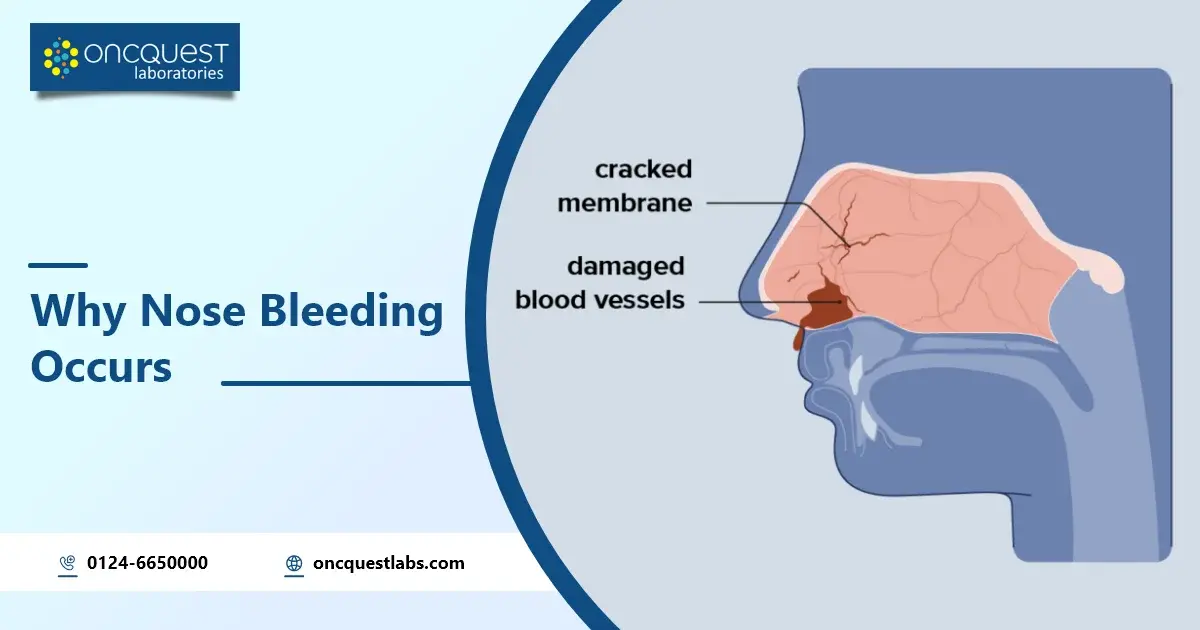A clogged nose, or nasal congestion, is a common and often frustrating condition experienced by many people. It occurs when the nasal passages become swollen with excess fluid and mucus, making it difficult to breathe through the nose. This can lead to discomfort, difficulty sleeping, and even sinus pain. Understanding the causes of a clogged nose is essential for effective treatment. Nasal congestion can result from a variety of factors including allergies, the common cold, sinus infections, and environmental factors like dry air or irritants such as smoke and dust. Each cause may require a different approach to relief, and knowing the underlying reason can help in choosing the most appropriate remedy.
Contents
Nasal Congestion Symptoms
Nasal congestion, also known as a stuffy or blocked nose, is characterized by various symptoms that can affect breathing and overall comfort. Common nasal congestion symptoms include:
Difficulty Breathing Through the Nose
Nasal congestion typically manifests as a sensation of obstruction or blockage in the nasal passages, making it difficult to breathe comfortably through the nose. This sensation can range from mild to severe, and individuals may find themselves needing to breathe through their mouth to compensate for the reduced airflow.
Runny Nose (Rhinorrhea)
Excessive mucus production is a common symptom of nasal congestion. The nasal passages may become inflamed and produce more mucus than usual, leading to a runny nose. This excess mucus can drip from the nostrils, causing irritation and discomfort.
Sinus Pressure and Pain
Nasal congestion often accompanies sinus pressure and pain, particularly in the forehead, cheeks, or around the eyes. This discomfort is caused by the buildup of mucus and inflammation in the sinus cavities, which can create a sensation of fullness or heaviness in the affected areas.
Postnasal Drip
Postnasal drip occurs when excess mucus drains down the back of the throat, leading to a persistent cough, throat irritation, or the sensation of a lump in the throat. This symptom can exacerbate throat discomfort and contribute to a persistent cough.
Sneezing
Nasal congestion may trigger frequent or uncontrollable sneezing as the body attempts to expel irritants from the nasal passages. Sneezing is a natural reflex that helps clear the nasal passages of foreign particles, allergens, or excessive mucus.
Reduced Sense of Smell and Taste
Nasal congestion can temporarily impair the sense of smell (olfaction) and taste (gustation). The buildup of mucus and inflammation in the nasal passages can interfere with the ability to detect odors and flavors, leading to a diminished sensory experience.
How to Cure a Blocked Nose
Curing a blocked nose involves a combination of home remedies, over-the-counter solutions, and lifestyle changes. Home remedies like steam inhalation and saline nasal sprays can effectively loosen mucus and reduce nasal congestion. Staying hydrated by drinking plenty of water and warm fluids like herbal teas can also help thin mucus and improve drainage. Using a humidifier adds moisture to the air, preventing nasal passages from drying out. Over-the-counter medications such as nasal decongestants and antihistamines can provide quick relief, but should be used according to instructions to avoid side effects. Incorporating natural remedies like essential oils and warm compresses can further alleviate symptoms. Lifestyle adjustments, such as avoiding allergens, staying active, and sleeping with the head elevated, can prevent future congestion. If symptoms persist for more than 10 days or are accompanied by severe discomfort, it is important to consult a healthcare provider to rule out any underlying conditions. By using these strategies, you can effectively relieve and manage a blocked nose, ensuring better breathing and overall comfort.
Home Remedies for Blocked Nose
Nasal congestion can be alleviated using various home remedies that provide relief from blocked nasal passages. Here are some effective methods to help clear congestion and promote easier breathing:
Steam Inhalation
Steam inhalation is a simple yet effective remedy for nasal congestion. By inhaling steam, the nasal passages are moisturized and irritated tissues are soothed, providing relief from congestion. To perform steam inhalation, boil water and pour it into a bowl. Lean over the bowl, cover your head with a towel to trap the steam, and breathe deeply for 5-10 minutes. Optionally, adding a few drops of essential oils like eucalyptus or peppermint can enhance its decongestant properties.
Nasal Irrigation
Nasal irrigation, a popular remedy for nasal congestion, involves rinsing the nasal passages with a saline solution. This method helps flush out mucus, allergens, and irritants, providing relief from congestion and sinus pressure. Using a neti pot or squeeze bottle, gently pour the saline solution into each nostril, allowing it to flow out through the other nostril. Nasal irrigation is safe and effective when performed correctly, but proper hygiene and technique are crucial to prevent infection.
Warm Compress
A warm compress applied to the face can provide relief from nasal congestion by reducing sinus pressure and promoting the loosening of mucus. To make a warm compress, soak a clean towel in warm water, wring out excess moisture, and then place it over the nose and sinuses for 5-10 minutes. This soothing remedy helps alleviate discomfort and facilitate easier breathing.
Elevating Head Position
Elevating the head position while sleeping can alleviate nasal congestion by reducing the buildup of mucus and promoting easier breathing. Using extra pillows or a wedge pillow to elevate the head allows gravity to help drain nasal passages, preventing congestion and facilitating airflow. This simple yet effective technique can improve sleep quality and provide relief from nighttime nasal congestion.
Hydration
Hydration plays a crucial role in relieving nasal congestion by thinning mucus and keeping nasal passages moist. Drinking an adequate amount of water, herbal teas, or clear broth throughout the day helps maintain hydration levels, making it easier to breathe. Proper hydration also supports overall health and immune function, aiding in the body’s ability to fight off infections and reduce inflammation in the nasal passages.
How to Clear a Stuffy Nose
To instantly open a blocked nose, there are several quick and effective methods you can try. Steam inhalation is one of the fastest ways to relieve congestion. Boil water, pour it into a bowl, and lean over with a towel draped over your head to trap the steam. Inhaling deeply through your nose for a few minutes can help loosen mucus and open up your nasal passages almost immediately. Additionally, using a saline nasal spray can provide quick relief by moisturizing and clearing your nasal passages. Over-the-counter nasal decongestant sprays are another option, as they work rapidly to shrink swollen blood vessels in the nasal passages. Applying adhesive nasal strips to the bridge of your nose can physically open your nasal passages, allowing for easier breathing. Lastly, consuming spicy foods or drinking warm fluids like herbal tea can help thin mucus and provide temporary relief from nasal congestion.
Conclusion
A stuffy nose can be uncomfortable and disrupt daily activities, but with the right approach, relief is attainable. Home remedies like steam inhalation, saline nasal sprays, hydration, and spicy foods offer natural relief, while over-the-counter solutions such as decongestants and antihistamines can provide additional support.Additionally, incorporating lifestyle changes like avoiding triggers, staying active, and maintaining proper sleep positions can help prevent future nasal congestion. It’s essential to monitor symptoms and seek medical attention if congestion persists or if there are signs of infection or underlying health conditions.
Frequently Asked Questions (FAQ)
1. What causes a stuffy nose?
- A stuffy nose can be caused by various factors, including allergies, colds, sinus infections, and environmental irritants like smoke or pollution.
2. How can I quickly relieve a stuffy nose?
- Quick relief methods include steam inhalation, saline nasal sprays, hydration, and over-the-counter decongestants. These methods help to open up nasal passages and reduce congestion.
3. Are there any natural remedies for a stuffy nose?
- Yes, natural remedies like steam inhalation with essential oils, warm compresses, hydration with herbal teas, and consuming spicy foods can help alleviate nasal congestion.
4. When should I see a doctor for my stuffy nose?
- If your stuffy nose persists for more than 10 days, is accompanied by fever, facial pain, or thick, colored nasal discharge, or if you have underlying health conditions like a deviated septum, it’s advisable to seek medical attention.
5. Can lifestyle changes help prevent a stuffy nose?
- Yes, lifestyle changes such as avoiding triggers like allergens, staying active, maintaining proper hydration, and sleeping with your head elevated can help prevent nasal congestion.





